What Happens if Someone Else is Driving My Car and Gets in an Accident?
10 March 2023
This is a common situation. Many people let friends or family members drive their vehicle, only to have them get into an accident. They contact our firm with many questions, particularly about liability for the collision.
Under California law, everything depends on who caused the accident and the terms of your insurance policy. Our attorney, Brian P. Azemika, looks at some examples below.
Scenario #1: Another Driver Caused the Crash
You might have let your cousin drive your car to a doctor’s appointment, only to have her get rear-ended in the parking lot. However, the driver who struck her is at fault because he was texting while driving and following too closely.
In California, the general rule is that the driver who is responsible for the accident is legally liable. In this example, your cousin is not responsible—the other driver is. As a result, the other driver’s insurance policy should cover damage to your car and any damages suffered by your cousin, like medical bills to treat whiplash or another bodily injury.
Scenario #2: The Person Who Borrowed Your Car Caused the Crash
This is the situation you want to avoid. You lent your car to someone, and they got into an accident because they weren’t driving carefully. Maybe they were speeding, or maybe they were texting and driving. Whatever the reason, they caused the accident and hit someone else.
In this example, we need to look at your insurance policy. Most policies cover the vehicle. Consequently, your car insurance should be available to pay compensation to the victim hurt in the crash. California requires that motorists carry insurance with a minimum coverage of $15,000 per person for injury or death, and up to $30,000 for more than one victim in a crash. You should also have $5,000 in property damage coverage.
What happens if the victim suffers damages in excess of your policy? In that situation, they can look to any insurance held by the driver who borrowed your vehicle. Their insurance is called secondary coverage, whereas your insurance (as the car owner) is primary coverage.
Can You Be Sued?
Sometimes, the primary and secondary insurance combined is not enough to fully compensate a victim for their losses. In that situation, can you be sued as the car owner? The answer is “it depends.” Generally, the person who drove negligently is personally liable to the victim, so the victim could sue whoever borrowed your car and drove carelessly.
In some situations, the victim might sue you for negligent entrustment. This occurs when you lend your car to someone who is likely to misuse it. For example, you might get sued if you gave your keys to a drunk friend or a person without a valid driver’s license. These people are likely to drive dangerously, which means you could be sued by anyone they end up hitting.
Contact Us to Discuss Your Case
Accidents leave many victims in a deep financial hole. We can discuss whether you can sue for compensation following a crash.
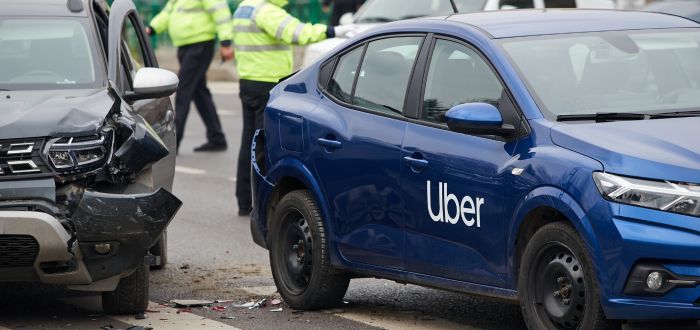
Getting into an accident while driving for Uber or Lyft, or while riding as a passenger, can get complicated fast. There are important differences depending on your role in the vehicle and exactly when the accident happens. Here’s what you need to know from both perspectives: If You’re the Driver: Your insurance coverage depends on what stage you’re in when the accident occurs: Logged into the app but haven’t accepted a ride: You have limited coverage, and it’s typically the lowest level available. I accepted a ride but haven't picked up the passenger yet: Your coverage has increased, but it’s still not the maximum. A passenger in the vehicle en route to their destination: This is when you have the highest level of insurance protection. Many drivers don’t realize that Uber and Lyft often mirror their auto insurance in terms of things like collision and comprehensive coverage. If you don’t carry those coverages on your policy, they likely won't provide them either. Many drivers try to save money by purchasing only the minimum required personal coverage, thinking Uber or Lyft will cover the rest, but that’s risky. If your policy doesn’t have collision or comprehensive coverage, you could be left with no way to repair or replace your car after an accident. Losing your vehicle could also mean losing your source of income. Uninsured motorist coverage is another key area to watch. Again, Uber and Lyft may mirror what you have personally. If you don’t have uninsured motorist coverage, you could be in trouble if you’re hit by someone without insurance or with inadequate coverage. The bottom line: Read the fine print in your Uber or Lyft contracts. Make sure you have the right personal insurance, including collision, comprehensive, and uninsured motorist coverage, to protect yourself. If You’re the Passenger: Things are a little simpler if you’re riding as a passenger. If another driver causes the accident, their insurance will typically cover your injuries. If your Uber or Lyft driver is at fault, you’re also protected: Uber and Lyft provide insurance coverage for passengers, and at that stage, the coverage limit is usually up to $1 million. As a passenger, you should still take the same important steps after an accident: Take care of yourself first . Seek medical attention if needed. Document everything. Save your ride information from the app, take screenshots if necessary, and get contact info from the driver and any witnesses. Report the accident. Contact Uber or Lyft’s corporate claims office and provide all the details. Call an attorney. You need someone who understands the complexities of rideshare insurance claims. While the rideshare companies will have insurance, it’s always better to be proactive. Save all the details you can and stay in control of the communication with insurance adjusters. Navigating the complexities of an Uber or Lyft accident can be overwhelming, whether you're a driver or a passenger. Protecting your rights and financial well-being after an accident depends on knowing what your insurance covers and acting appropriately. At The Law of Brian P. Azemika, our main goal is to help clients navigate the complex rideshare accident claims process so they may receive the information and support they need to secure the compensation they are entitled to. Call us today to learn how we can assist you during this challenging time.
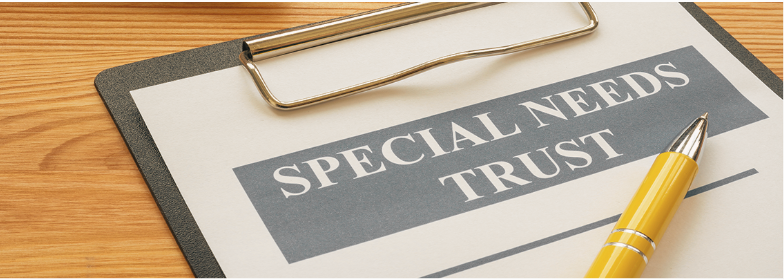
Recently, I had an unusual case come across my desk. A local, well-respected law firm had handled a catastrophic injury case involving a minor. The injuries were tragic, but it was a policy limits case with a $500,000 insurance. The parents, understandably upset by the extent of their children's injuries, were frustrated when they were told that $500,000 was all that was going to be given to them. There was no more money to pursue. They ended up firing the firm, not because the firm had done anything wrong, but because they couldn’t accept that reality. Since they were aware of the severe injuries and the toll it would have on the family, the original firm refused to take a fee from them when they settled. However, once the case was resolved, the parents were left alone to handle the minor’s compensation. This process can be overwhelming, even in the simplest of cases. Most attorneys don’t typically charge hourly rates for minors' compensation; they usually work on a contingency. However, since the main settlement was finalized and most firms weren’t set up for hourly work in these scenarios, the family was left without much help. A colleague specializing in estate and financial planning asked if I could assist the family. She mentioned that the case needed a minor’s compensation and a Special Needs Trust, making it even more complicated. I agreed to help and did it on a small hourly basis. Even though I spent so many hours on this case, I didn’t want to take away from the money that should be going to the kids. During the process, I had to get documentation from the original attorneys. When I spoke with one of them, he said, "Brian, you're doing God's work, man. You're not going to make anything off of this." He was right — but that wasn’t the point. I knew this family needed help; they were at risk of seriously jeopardizing their children's future. One of the major hurdles we encountered was the health insurance reimbursement. Many don’t realize that health insurance companies often have clauses requiring repayment if you receive a settlement for injuries they paid to treat. And if the health plan is an ERISA plan, which is common for union workers and large employers, the insurance company gets paid first, sometimes even leaving the injured party with nothing. In this case, the family’s health insurance was an ERISA-based union plan, and they were seeking to recover $200,000 to $250,000 from the settlement. It was a devastating blow, but I negotiated with the plan administrators and ultimately got them to waive their claim, which rarely happens. As a result, nearly every dollar from the settlement went directly into a Special Needs Trust for the injured child, ensuring she would have the resources she desperately needed. I only took a minimal fee to cover my basic expenses; the rest was left untouched for the family's benefit. This wasn’t a typical case for me. I wasn’t involved from the beginning and wasn’t wearing my "usual hat." I stepped in at the end to help an overwhelmed family with nowhere else to turn. It's not the type of work I seek out, but it's the kind of work that reminds me why I became a lawyer in the first place — to help people through the most challenging moments of their lives. Navigating the legal and insurance systems isn't easy, especially for families already dealing with trauma and hardship. The system isn’t built for the average person to understand easily. It takes experience, time, and a willingness to put people before profit to make a difference. In this case, I’m grateful I could step in when it mattered most.
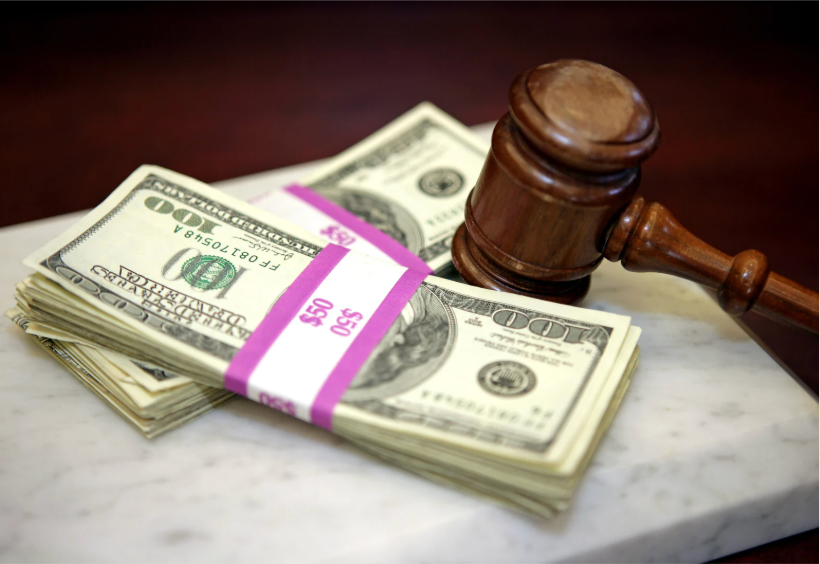
When a legal case involves a minor, whether it’s a car accident, a dog bite, or a pedestrian injury, there’s always an extra layer of responsibility. It’s not just about how we handle the case but also about what happens after it settles. That’s when planning for the child’s financial future becomes essential. In one of my recent cases, the settlement included a large sum for a young girl who had suffered serious injuries. The question came up: What’s the smartest, safest way to manage that money long-term? Setting up a trust wasn’t something the family had ever considered. It’s not the kind of thing most people think about—especially while they’re still dealing with the emotional and physical aftermath of a traumatic event. But that’s part of my job. I brought up the idea and coordinated with professionals specializing in that area. I retained attorneys to help set up the trust and brought in financial advisors who would serve as trustees and manage the money on the child’s behalf. This kind of work is common in cases involving minors. Whenever a settlement includes money for a child, the court has to approve how those funds will be handled. What we typically do is calculate the net amount the minor will receive after costs, then sit down with the parents and walk them through their options. In many cases, the money goes into a blocked account—a savings account that sits there until the child turns 18. Once they’re legal adults, they can walk into the bank with an ID and a birth certificate and access the funds. But that’s not always the best approach. I mean, think about it—would you want your 18-year-old suddenly handed $100,000 in cash? There are better options, depending on the family’s goals. One alternative is setting up an annuity. For example, we’ve structured college-focused annuities where the child receives a lump sum for each of the four years following their 18th birthday to help with tuition. Then, they might receive additional disbursements at 25 and 30. That way, the original $100,000 can grow to $150,000 over time, and the child doesn’t get it all at once. I’ve been doing this for a long time, and I’ve seen what can happen when there isn’t a solid plan in place. As a parent myself, I always ask: What would I want if this were my child? That’s how I approach these conversations with families. So yes, the legal fight matters, but what happens after is just as important. My role doesn’t stop once the case settles. I’m there to guide families through the next steps, connect them with trusted advisors, and ensure they’re making the best possible decisions for their child’s future. Because that’s what we do, it’s not just about winning a case but protecting what comes next.

Though challenging, one of my favorite cases involved a serious car accident where the defendant was a police cruiser. In this case, the officer pursued a stolen vehicle but failed to activate their emergency lights and sirens until they entered the intersection. They were going around 70 miles per hour, just as my client happened to be driving through the intersection. Because there were no warning signals, my client had no way of knowing what was coming. The crash was severe. She was lucky to walk away from it, but at the time, she was about 12 weeks pregnant, and the accident caused significant complications. The core of our legal fight was proving that those complications—and the effects they had on her baby—were directly caused by the accident and not just any kind of random pregnancy complications. We brought in her treating doctors through Kaiser, as well as our own expert witnesses, and together, we were able to build a strong case showing that the accident was the key to her baby suffering complications. The baby, a little girl, was born but unfortunately suffered developmental issues. Medical evaluations showed that the placenta had ruptured, and the mother had been experiencing internal bleeding throughout the pregnancy. Because of that, the baby wasn’t getting the nutrients she needed in utero. Litigating this case was especially challenging because it involved a city entity. Government tort claims are governed by very specific laws under the Government Tort Act. Dealing with this is very complicated, as the process is very specific. There are shortened timeframes—claims must be filed within six months, and if they’re denied, you only have another six months to file a lawsuit. That’s very different from the usual two-year window in standard civil cases. And this family, the clients I was representing, were immigrants who didn’t speak much English and had no understanding of the legal system here. They were scared, overwhelmed, and just trying to navigate a high-risk pregnancy on top of everything else. So, part of my job—maybe the most important—was to take that legal burden off their shoulders. I couldn’t help medically, of course, but I could reassure them, connect them with specialists, and manage the legal side so they could focus on the health and safety of their child. Honestly, even someone who’s been born and raised here, with generations of family behind them, would have trouble figuring out a government tort claim. So, for first-generation immigrants who didn’t speak much English and had no idea what the process even looked like, it was a lot. My job was to step in, walk them through it, and make sure they didn’t feel like they were doing it alone. We litigated against the city and ultimately settled the case for around $2 million. A significant portion of that—about $1 million—was placed into a special needs trust for the daughter, something unique we did for the family. The trust is managed by a financial advisor and designed to support the daughter’s developmental needs throughout her life. It covers specialized schooling, therapy, and even a custom vehicle for easier transportation. What’s really rewarding is that I still hear about how she’s doing. I get updates because the trust is ongoing, and I worked with the attorneys who helped set it up. They’ve been able to send her to a private school that caters to her needs and helps her live everyday life. There’s even talk of buying a home through the trust, so she’ll have a secure place to live long-term. It was complicated, both emotionally and legally. But helping a family who never could have navigated that on their own, especially in a case with so much at stake, is exactly why we do this work here at The Law Office of Brian P. Azemika. Cases like this are the ones that stay with you.

Here’s how our process works: When someone calls our office, one of my assistants gathers general background information about what happened. Then, they bring that information to me, so I have a foundation to work from when I speak with that person directly. That way, I can ask the right questions and figure out how we might be able to help. Even if I can’t take on the case or it’s not something we handle, I always make sure to provide helpful information. That way, they’re better prepared to deal directly with the insurance company or whoever they’re having trouble with. And here’s the thing—it’s free. So why wouldn’t you take advantage of that? There’s absolutely no obligation. You're simply getting the chance to talk to someone who understands what you're going through and can give you a clearer picture of the process. If you decide you want us to take the stress off your plate—deal with the paperwork, the phone calls, the negotiations—so you can focus on healing and following your doctor’s treatment plan, that’s great. But if you choose to handle things independently, that’s perfectly fine, too. What matters most is speaking to someone first to understand what you're about to go through and what steps to take. Because let’s be honest—the insurance company isn’t going to go out of its way to help you. Now, I know some people will call their own insurance company right away, which isn’t necessarily bad—especially if you're trying to get your car fixed and stressed about being without a vehicle. That’s totally understandable. I usually tell people: be careful what you say—don’t go into too much detail about your injuries or how the accident happened until you’ve spoken to a lawyer. You don’t want to accidentally say something that could later hurt your case. So yes, take care of your property damage if you need to, get a rental car, and deal with your insurance if you have to—but before you talk to the other party’s insurance company, talk to a lawyer. That step can make all the difference.
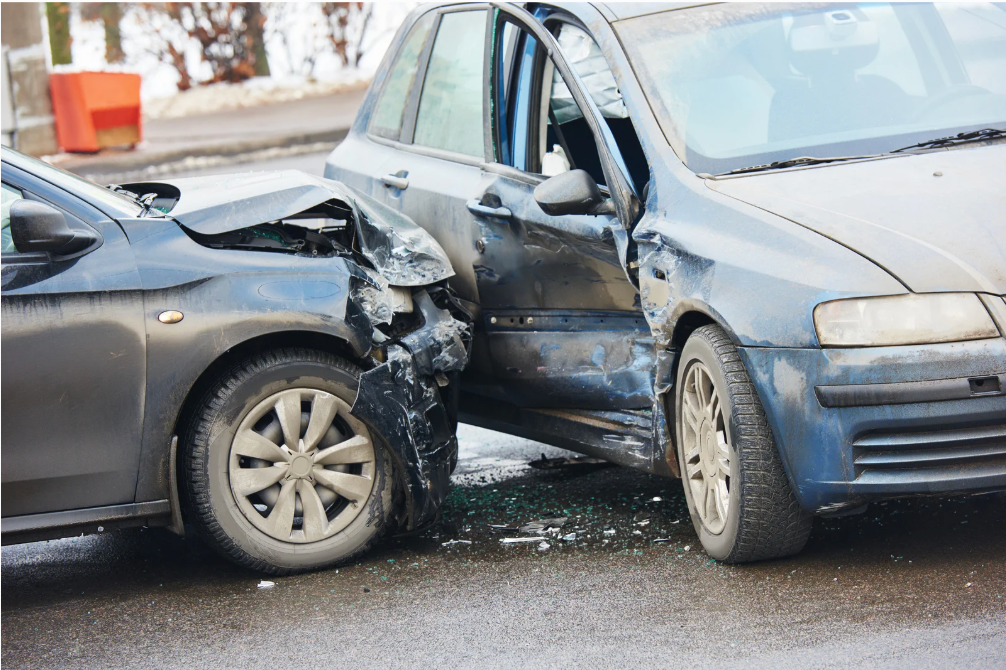
If you've been in a serious car accident, it’s normal to feel overwhelmed and unsure about what to do next. Many people wonder, “Should I call my insurance company? What’s the next step?” Let me walk you through the process—because, in those moments, your focus should be on your health and well-being first. The most important thing to do after an accident is to take care of yourself. If you’re in significant pain or think you might be seriously injured, don’t hesitate—call 911 and get medical help immediately. Don’t try to downplay your injuries or tough it out—that can lead to long-term issues or permanent damage. If first responders suggest you take an ambulance to the hospital, listen to them. Your health comes first. If you have family or friends in the car, check on them as well. Ensure you get the help you need because you don’t want to worsen the symptoms, so don’t avoid help when needed. In many cases, the adrenaline and shock from an accident can mask pain. It’s common for people to feel fine at the scene, decline medical help, and then realize hours or days later that something is wrong. In this situation, the first thought should still be about yourself. If you notice pain later, don’t ignore it—go to an urgent care, see your primary doctor, or visit the emergency room. Your well-being is the priority. What about the insurance company? Most people assume their insurer will guide them through the process—but that’s not the case. Rather than making sure you get the care you need, insurance companies will work to minimize your claim and protect their profits. They may try to play down your injuries, delay your lawsuit, or offer you a lowball payment. That’s why I advise my clients to prioritize their health and get medical attention when they feel pain or discomfort. Once you’ve addressed your immediate medical needs, contact an experienced attorney. You’ll want to ensure you know your rights before speaking to the insurance carrier, as it may affect the value of your case or the compensation you deserve. At my firm, we offer free consultations —and when you call, you will be able to speak directly with me, not a case manager or someone without legal experience. Whether you choose to work with us or not, I prioritize ensuring you understand your rights before talking to the insurance company. Insurance companies have teams of lawyers working to protect their interests—you deserve someone just as experienced fighting for you. My job is to give you the knowledge and support you need to navigate this process and ensure you get the compensation you deserve.

It’s not just about representing local individuals—it’s about standing up for people everywhere who need someone on their side. Early in my career, I had the opportunity to work at a firm that represented big corporations, government entities, and other large entities, but I quickly realized—that wasn’t for me. I didn’t want to be part of a massive corporate machine. I wanted to fight for the little guy—the people who find themselves going up against powerful institutions through no fault of their own. When someone is injured in a car accident, it might seem like they’re just facing another individual. But behind that person is a billion-dollar insurance company calling the shots. Most people don’t realize this, but the person who caused the accident has little to no say in how things are handled. The insurance company drives the settlements and decides what they think someone’s pain and suffering is worth. For those who’ve experienced a catastrophic injury or the devastating loss of a loved one, the legal battle isn’t just a business decision—it’s their life. At the same time, these businesses are focused on protecting their bottom line by having their adjuster and attorneys bring all they have to the table. I wanted to be an advocate and stand with those individuals who were struggling to navigate the overwhelming legal process while already dealing with pain, stress, and uncertainty. They shouldn’t have to face billion-dollar corporations, nickel and diming them and playing hardball all alone. I’m here to take that burden off their shoulders and fight for the justice they deserve. I want to be in my client's corner as they go up against Goliath. I love this community; many of the people I represent are from here. But my work goes beyond local borders—I’ve helped clients across California, from Southern California to Northern California. No matter where they are, my mission is to ensure every individual has a voice and someone in their corner willing to take on the big insurance companies.

I’m Brian Azemika from the Law Office of Brian P. Azemika. I want to give you a little background on how I got to where I am today, where I proudly call home, and where I have the privilege of helping clients daily. I was born and raised in the Bay Area, but I moved to Kern County while in the latter years of high school. I met my wife while in high school in Bakersfield, California, and following high school, we both moved to Sacramento to go to college and law school. I went to UC Davis, and she went to Sacramento State. After graduation, she became an elementary school teacher and I went to law school at the University of the Pacific McGeorge School of Law in Sacramento, California. After graduating from law school, we moved back to Bakersfield due to the economy and job market, which is where I started my career as an attorney. It wasn’t long before I realized how much I missed Northern California. I convinced my wife—born and raised in Kern County—to leave everything behind, including her family, and move north with me. We built a life we truly loved in Northern California. We appreciated the balance of a small-town feel with big-city amenities and loved being close enough to visit San Francisco whenever we wanted. We eventually decided that this was where we wanted to raise our family. Our oldest daughter was born in Sacramento while living in the Natomas area. When she was ready to start kindergarten, we moved to Roseville, where our second daughter was born. Both of our girls are essentially Sacramento-Roseville natives, and this region has become a core part of our identity. My wife is a teacher in the Natomas area, and I’ve been actively involved in the Roseville community through coaching soccer. I started as a recreational coach for my oldest daughter when she was in first grade and eventually transitioned into coaching competitive soccer. Now, I coach both of our daughters—one in rec soccer and the other in competitive soccer—and I sponsor the Roseville Soccer Club. Recently, I became a corporate sponsor for the Roseville Iron Rose, a semi-professional women’s soccer team, further deepening our roots in the community. We consider Roseville and the greater Sacramento area our home. Our friends here have become our chosen family since most of our relatives are still in Southern California. Our community extends across the region—from Loomis to Elk Grove to Amador County. We gather together often, and our kids have grown up alongside each other, creating a strong, supportive village. When people ask where we’re from, we proudly say Northern California—specifically, Sacramento and Roseville. This is home. It’s where our lives are rooted and where we plan to stay. I love this community and am here to support it daily through my work. The people here aren’t just clients—they’re my neighbors, friends, and extended family, and I’ll always be here to stand by them and fight for what they deserve.
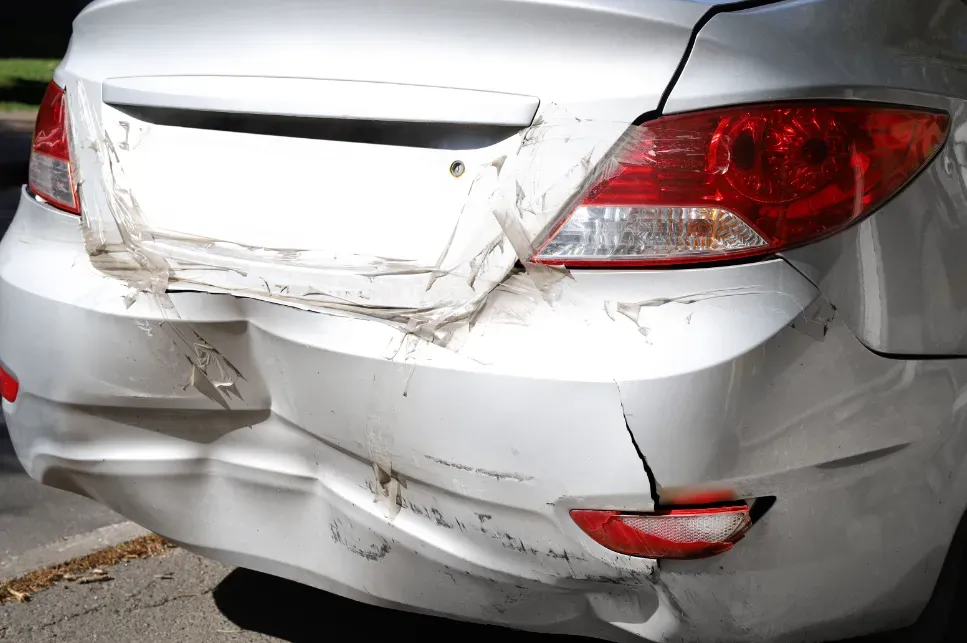
California law requires that drivers involved in collisions immediately stop their vehicles. Fleeing the scene is a criminal offense, and those charged could face time behind bars. What do you do if you were hit by a motorist who fled the scene? At the Law Office of Brian P. Azemika, we have negotiated many settlements for hit-and-run victims, and we know what steps can strengthen your legal claim. Below, our car accident lawyer provides his best tips. At The Scene You should remember to do the following: Immediately stop your car. You can’t flee the scene at the same time as the other driver, otherwise, you have also committed a crime. Identify as much of the license plate as possible. Try to get even one number or letter. Anything helps with identifying the vehicle that struck you. Remember other key details. You can share with the police information about the car’s make and model, as well as its color. If you saw the driver, also note the likely gender, as well as hair color, glasses, etc. Call the police. You should report the accident to the police. Share any details you have about the car or license plate number. Speak to witnesses. They can prove critical later. Many insurance companies wrongly believe hit-and-run victims crashed their own vehicles. Witnesses can help establish that another motorist really did hit you. Document physical evidence. A car that slams into yours might leave pieces behind. Look for pieces of glass or plastic. Also, there should be paint smears on your own car, which will help us identify the color of the vehicle. After the Accident A key consideration is whether you can receive any compensation for a hit and run. The answer depends on the type of insurance you have. If the police catch the driver, we can sue them or make a claim on their insurance. Otherwise, you might be left with seeking compensation from the following insurance: Medical payments. This is optional insurance in California. It pays for medical treatment for any car-related injuries, regardless of fault for the crash. Collision coverage. This insurance pays to fix your car up to the policy limit. It’s optional, but most car lenders require that you get it so long as you have a car loan. This is also no-fault insurance. Uninsured motorist coverage. This insurance covers accidents where the driver who struck you lacked liability coverage. It is optional insurance, but you can use it for a hit-and-run to pay compensation for bodily injuries. An insurer must offer this coverage when they sell you a liability policy. Unlike med-pay and collision, this insurance is fault-based. Remember to hang onto medical bills and any car repair bills. You will need to submit these to your insurers. Call Our Car Accident Lawyer in Sacramento This is a key step. Many motorists find that their insurer is not eager to pay for a hit-and-run crash. We might need to negotiate with them to get them to cut a check. Please call our law firm today to speak with a lawyer.
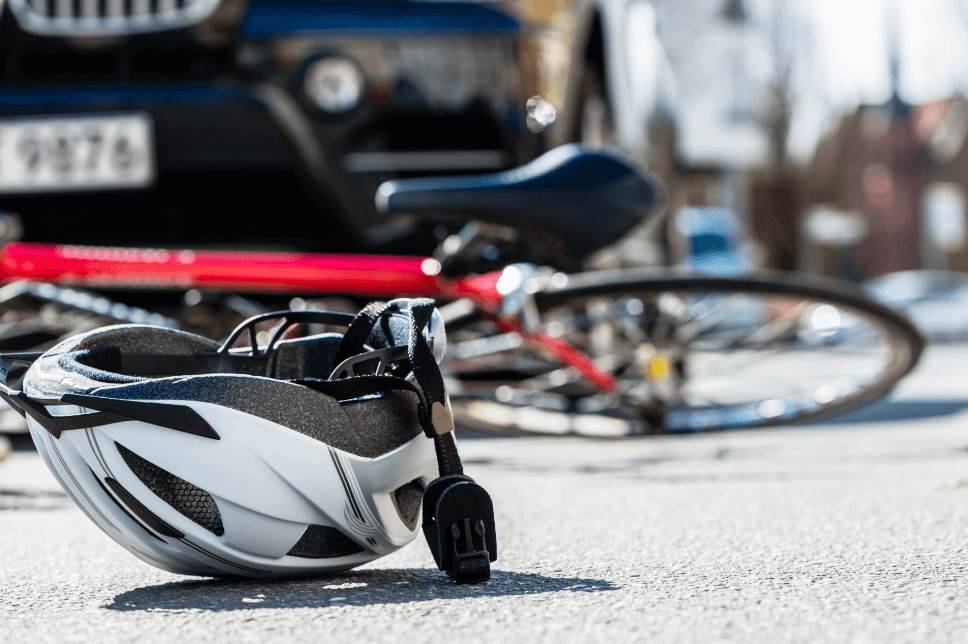
Bicycles and cars collide all the time, especially at intersections. It is tempting to always blame the motorists because they are driving a large vehicle that can cause serious injuries. However, under California law, we need to determine who was negligent, if anybody. Negligence is the failure to use reasonable care under the circumstances and can include violating the rules of the road. Depending on the facts, either the car driver or the bicyclist could be at fault for the collision. Or they could share the blame. Who Was Negligent? One misconception is that the person who hit the other is always at fault. So if a car struck a bicycle, some people will claim the driver “must” be at fault. That’s simply not the case, however. Instead, we need to closely examine what the driver and cyclist did in the moments leading up to the crash. A person is at fault for the crash if they did not use reasonable care. Did either one: Run a red light Fail to yield Cut the other off Go too fast for conditions These are all negligent acts. If a motorist runs a red light and cuts off a cyclist, leading to a crash, then the driver is at fault for failing to drive carefully. It doesn’t matter if the cyclist crashes into the car. Other examples of negligence include being fatigued or intoxicated or else distracted by a cell phone. An impaired driver will probably not control their vehicle in a safe manner. Other collisions happen because someone Is not watching where they are going, instead choosing to read a text message. This is true of both motorists and cyclists. Both Sides Can Share Fault California law recognizes that both sides are negligent in many accidents. That means both share fault for the crash. For example, a motorist might have cut off a cyclist, but the cyclist was distracted because she was looking at her phone. California’s law is a “pure” comparative fault system. You can be up to 99% responsible and still seek compensation so long as the other party is at least 1% to blame. In other states, victims are prohibited from suing if they are 50% to blame or greater. But that’s not the law in California. If you go to trial, a jury will apportion fault based on the testimony and physical evidence. However, most cases settle, which means that lawyers and insurance adjusters hammer out how to allocate fault. At our law firm, we always strive to learn as much about the accident as possible to minimize our client’s share of the blame. Call Our Personal Injury Lawyer Today The Law Office of Brian P. Azemika has handled many collisions involving cars and cyclists. Our car accident lawyer will review the facts to determine whether you can legally seek compensation for any injuries suffered in a collision. Please call our law firm today to schedule a consultation with our legal team. There is no risk or cost for doing so.

